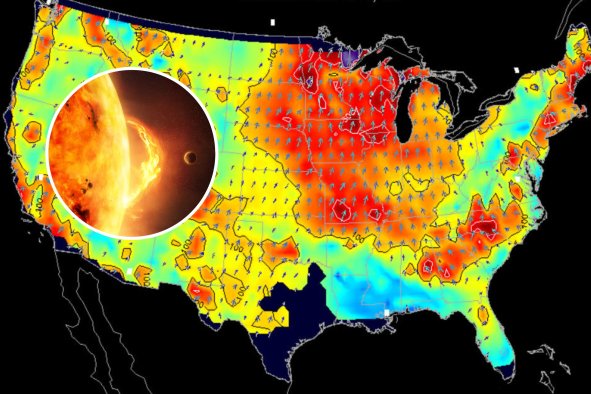Products you use in your everyday routine might be changing the air quality in your home in ways we don't yet understand.
Personal hygiene products, including roll-on deodorant, hand lotion, body spray, perfume and spray shampoo, contain an amalgamation of over 200 volatile organic compounds (VOCs), which then react with ozone in the air to form other potentially dangerous chemicals, according to a new paper in the journal Environmental Science & Technology Letters.
The researchers say that these newly formed chemicals may enter our lungs daily and could have unknown effects on our respiratory health.
"Some molecules 'nucleate'—in other words, they form new particles that can coagulate into larger ultrafine particles that can effectively deposit into our lungs," Dusan Licina, an assistant professor at Ecole Polytechnique Federale de Lausanne, said in a statement.
"In my opinion, we still don't fully understand the health effects of these pollutants, but they may be more harmful than we think, especially because they are applied close to our breathing zone. This is an area where new toxicological studies are needed."
Personal care products contain a large cocktail of VOCs, including monoterpenes, acetaldehyde, siloxanes, alcohols, and alkanes.
"Indoor use of PCPs is therefore a potentially important source of human exposure to VOCs," the researchers wrote in the paper. "The use of PCPs can result in episodic strong emission events, causing indoor VOC levels to reach one or 2 orders of magnitude higher than those found outdoors."
Monoterpenes, in particular, are known to react with ozone inside, forming secondary organic aerosols (SOAs).
The researchers wrote, "Using fragranced PCPs indoors may also lead to particle formation in a similar manner. "
The scientists tested how many VOCs were released by these personal care products in an indoor environment and then tested what happened when they introduced ozone. Ozone can enter homes via open windows and can also be created by laser printers and 3D printers.
"When using the PCPs in the presence of indoor ozone, these reactive VOCs underwent oxidation reactions to form a variety of gas-phase oxidized vapors and led to rapid new particle formation (NPF) events with particle growth rates up to ten times higher than outdoor atmospheric NPF events," the researchers wrote.
The researchers stated that we must find a way to reduce this reaction between these VOCs and ozone by improving ventilation and reducing the use of these personal care products.
"I know this is difficult to hear, but we're going to have to reduce our reliance on these products, or if possible, replace them with more natural alternatives that contain fragrant compounds with low chemical reactivity," Licina said. "Another helpful measure would be to raise awareness of these issues among medical professionals and staff working with vulnerable groups, such as children and the elderly."
Do you have a tip on a science story that Newsweek should be covering? Do you have a question about air quality? Let us know via science@newsweek.com.
References
Wu, T., Müller, T., Wang, N., Byron, J., Langer, S., Williams, J., & Licina, D. (2024). Indoor Emission, Oxidation, and New Particle Formation of Personal Care Product Related Volatile Organic Compounds. Environmental Science & Technology Letters. https://doi.org/10.1021/acs.estlett.4c00353
Disclaimer: The copyright of this article belongs to the original author. Reposting this article is solely for the purpose of information dissemination and does not constitute any investment advice. If there is any infringement, please contact us immediately. We will make corrections or deletions as necessary. Thank you.



